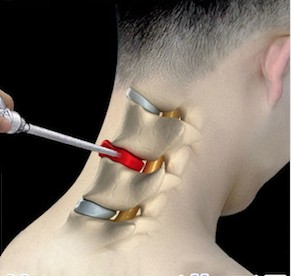Why do I have neck pain due to cold weather?
It’s common for your aches and pains to feel more intense and to be with you more often when the fall chill is upon us. You want to curl up in a softball to try to stay warm. Many people move less in cold weather, too, because they feel stiff when they exercise in general.

In cold weather, even manageable neck and shoulder symptoms can suddenly become more difficult to manage.
If you understand how cold air affects the tissues in the neck and shoulder area, you will be able to take a positive response to help yourself reduce pain and stiffness in your neck and shoulders during the winter months.
Why does neck pain and stiffness occur when the temperature drops?
In cooler weather, our nervous system may trigger changes in the body where muscles tighten to constrict the blood vessels in the neck, shoulder, and arms. This is thought to be a response to reduce heat loss from the extremities and periphery of the body, allowing the core body temperature of vital organs to be maintained.
Prolonged tightening of muscles in a shortened state increases our perception of pain.
In cold weather, feelings of anxiety and fear are heightened, leading to increased negative neurological responses.
Discomfort, annoyance, and pain in the neck and shoulders are usually associated with poor posture when the temperature drops.
It is common to do the following: Lift and hold on to your shoulders. Slouch around your mid-back. Poke your chin forward. This change in posture can cause pain.
The discomfort of cold weather can also keep us from moving as often as we should, which can lead to stiff joints and decreased muscle flexibility. Once again, our fear in the nervous system becomes a driving factor in reduced movement or poor movement patterns.
Another notable cause of neck pain due to cold weather is an elevated rib injury.
Other causes of neck pain due to cold weather

Unless there is an existing medical problem, a cold neck equals a stiff neck. But it’s not just the cold winter grip that affects us.
Lifestyle
If you spend a lot of time while sitting in front of a computer, then you may also suffer from neck pain. Poor posture, looking at a poorly positioned screen for long periods of time, or resting your phone on your shoulder can definitely cause discomfort.
Air Conditioning
While we are the biggest advocates of air conditioners, they do need to be in the right environment and not blow directly into the back of your neck. (We know this comment may require you to use your air conditioner away from your co-workers!) In fact, many people who complain of neck pain when they wake up have spent eight unconscious hours in the direct path of cold air.
What can I do to relieve neck pain due to cold weather??
- Avoid cold, wet places with drafts.
- Wear warmer clothing (even indoors) – cute scarves, hats, warm undershirts, gloves, thick socks, jackets with collars.
- Safely use a heat pack on your shoulders, mid-back or neck.
- Avoid hunched, bent over, sloppy postures.
- Allow your shoulders to relax and gently lower.
- Look straight ahead with your eyes and gently tuck your chin to feel your neck lengthen.
- Rotate your shoulders back and forth with small movements.
- Relax and feel good about yourself while sipping your favorite beverage.
- Walk briskly for 15 minutes, several times a day, wearing warm clothes.
- Swim in a heated pool.
- Relax and enjoy at a spa or in a hot tub.
How to prevent neck pain due to old weather
- Reinforcement – In cold weather, it’s a good idea to have a pullover, jacket, brimless beanie or scarf.
- Use heat packs and gentle neck stretches to warm and relax the neck muscles.(This is especially useful for people with osteoarthritis)
- Stay hydrated. As the weather gets colder, it’s easy to forget to drink water. Warm water with some slices of lemon is delicious and warming, and has great hydrating properties.
- Make sure your pillow gives you the support you need.
- Make sure your workplace ergonomics are set up correctly. We spend a lot of time simply staring at our devices – whether it’s a laptop, smartphone or work computer. These can take a toll on your neck and can lead to pain.
- If your tightness or discomfort lasts more than 1 week, don’t let it become a chronic condition and seek treatment.
If you have made good efforts to follow the above recommendations within 24 to 48 hours, but your neck pain, shoulder stiffness, and loss of motion continue, it is time to make an appointment with one of your physical therapists.
